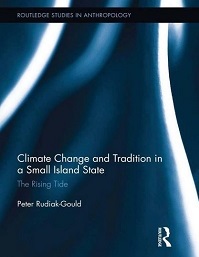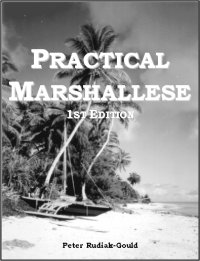Completed projects
Why are some people intensely
worried about global climate change while others
react with a yawn? Why are 97% of scientists convinced that the problem
is real and caused by humans, but only 49% of Americans? Who is
responsible for climate change (everyone, no one, rich people,
politicians, corporations?) and why does it matter who takes the blame?
Will Hurricane Sandy, heat waves, and the polar vortex make us finally
round the
bend of public awareness, or is it just more of the same? Should we
listen to the farmers, fishers, and backyard gardeners who say they
can see
climate change happening around them, or should we leave that to the
scientists with their ice cores samples and global circulation models?
What would happen if we saw climate change as a local issue and not a
global one? How can we effectively teach climate change to children? Do
indigenous and traditional communities have something to teach us about
how to weather the
storm?
I studied these and other questions as an
Assistant Professor Status-Only at the University of Toronto, a Mellon Postdoctoral Fellow at
McGill
University, and a doctoral student at Oxford University. My research uses
ethnographic methods to examine indigenous responses to the threat of
climate change. It is based on 19 months spent in the
Marshall Islands, including 7 months of fieldwork devoted to this
topic, and extensive interviews in the Marshallese language.
Here's a
good summary
of my findings. My work has been
featured in the New
Internationalist, NPR
blog, and Scientific
American. My
academia.edu
homepage
has a full list of my publications and
presentations. I've designed and delivered three undergraduate
courses in cultural anthropology, environment, and climate change.
I also conducted a short
project on
climate change perceptions among the Sami, the indigenous people of
northern Scandinavia, as a Visiting Researcher at the University of
Tromsø, Norway.




Climate
Change and Tradition in a Small Island
State: The Rising Tide
 How
would you react if someone told you that your entire country would be
uninhabitable within your lifetime? This book, published by Routledge
in 2013, investigates how the people of the low-lying Marshall Islands
understand and respond to the threat that sea level rise and
climate change pose to their way of life. Order it here.
How
would you react if someone told you that your entire country would be
uninhabitable within your lifetime? This book, published by Routledge
in 2013, investigates how the people of the low-lying Marshall Islands
understand and respond to the threat that sea level rise and
climate change pose to their way of life. Order it here.
“A well-written, empathetic,
and thoughtful contribution….The book
should take its rightful place among the best in the new ethnographic
genre about the emerging tragedy [of climate change].”
-Dr. David Lipset, Professor of Anthropology, Univ. of Minnesota
(Review in Oceania)
“An engaging, important, and highly
scholarly contribution to the
literature…The
author’s introspection, depth of data, and balanced analysis delve
deeply into humanity’s interests in and reactions to human-caused
climate change.”
-Dr. Ilan Kelman, Institute for
Risk and Disaster Reduction,
University College London (Review in Island Studies Journal)
“A uniquely sensitive and nuanced
account of…the complex and changing
relationships between society and nature…A welcome contribution to
thinking
about modernity, mobility and climate change, and the reactions and
resilience of those most threatened.”
-Dr. John Connell, Professor of
Human Geography, University of Sydney (Review in Australian Geographer
45(2))
Practical
Marshallese
 This
is a freely distributed, full-length textbook for learning Marshallese,
the native
language of the Marshall Islands. It has been used since 2004 as the
official language manual for all volunteers in the WorldTeach Marshall
Islands program, and it has formed the basis of language classes for
Americans at Kwajalein Atoll. The 102 short lessons describe the
grammar of the language in practical and familiar terms, and a glossary
presents 1500 useful words.
This
is a freely distributed, full-length textbook for learning Marshallese,
the native
language of the Marshall Islands. It has been used since 2004 as the
official language manual for all volunteers in the WorldTeach Marshall
Islands program, and it has formed the basis of language classes for
Americans at Kwajalein Atoll. The 102 short lessons describe the
grammar of the language in practical and familiar terms, and a glossary
presents 1500 useful words.
Download the book for free here. Nik Willson's excellent
Marshallese-English dictionary Naan can be
downloaded here.
Marshallese audio files made by Byron Bender can be obtained by emailing Daniel Tom (danielt AT hawaii DOT edu).
“A lucid course of instruction...The care with which you have
transcribed words, phrases, and sentences is remarkable.”
-Dr. Byron Bender, Professor of
Linguistics, University of
Hawai'i-Mānoa
“A work of monumental worth and
information.”
-Bettylene Franzus, WorldTeach
Marshall Islands volunteer